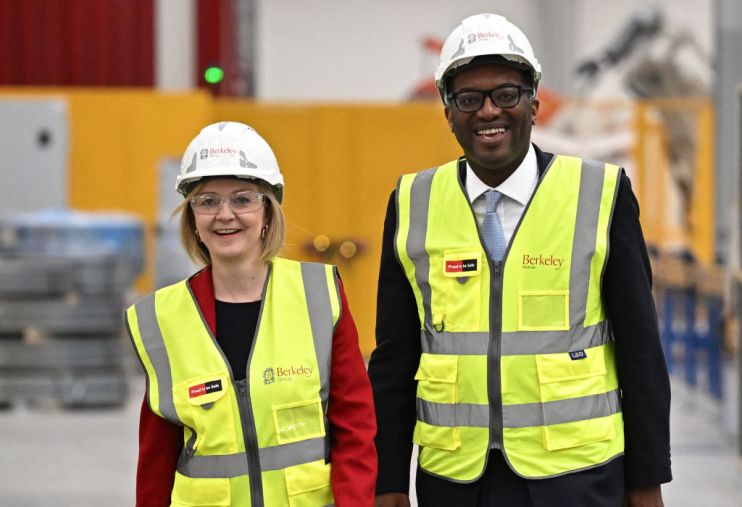Truss has no real choice but to stick to her risky pro-growth proposition

No one could say that Liz Truss had started her premiership quietly, after the hiatus of mourning the late queen. The chancellor’s “mini-budget” ten days ago was one of the most significant changes of economic policy in a generation. While Kwasi Kwarteng might have hoped for better reviews of his first major outing, he has certainly made an impression.
Let us be honest: it has been a calamitous period for our economy. The announcement of a new plan for growth promised huge tax cuts which were aimed at stimulating the economy as a whole and unveiled potential “investment zones” to create entrepreneurial activity in targeted areas.
It was, in one sense, the not-a-budget that passionate free marketeers had dreamed of. It should have been little surprise from two of the team which brought us Britannia Unchained, that 2012 pseudo-Thatcherite polemic.
The initial reactions were fierce and negative. Last week began with sterling at $1.03, a 37-year low. I was in New York, and the amused sympathy mixed with contempt was palpable. The markets were clearly spooked, and the enormous implications of the government’s tax cuts were reason enough: simply, if the growth that Truss and Kwarteng hoped for and craved did not come about, there was a massive hit on the government’s revenue on the way.
The political air is febrile. We are effectively still in the very early days of the new government, the Labour Party has just celebrated a sensible and disciplined conference and the Conservatives meet in Birmingham battered by a week of tough news and shocking opinion polls. There have been calls for an immediate u-turn on the financial measures, even for Kwarteng to be sacked from the Treasury. Tory MPs are despondent and looking for any balm to soothe them.
The chancellor can sleep easy. Truss is bonded too closely to him: handing him his notice would be an admission of personal failure, and would also make no difference without a change of policy. And that change of policy would be a catastrophic mistake.
The hard truth for the Conservatives is that there is now no alternative. If that echoes Thatcher, they might instead take solace from the advice of Churchill: when you are going through Hell, keep going. The economic direction unveiled by the chancellor may or may not boost the economy between now and the next general election, but the government has to realise it is out of options. Boldness has been forced up on it by the new management, so it might as well make it a virtue.
The last ten days have shown the commentariat at its most febrile and short-termist. Of course the initial signs were bad, but—absent a crisis like 2008, when events were measured by the half-hour—it is almost always wise to draw breath. By the end of last week, sterling had heaved itself back up to $1.12, hardly something to flaunt in the locker room of exchange rates but almost at the level it held before the mini-budget. It has not been a run on the pound.
Most of the measures announced by Kwarteng were not of immediate effect. The government will need to introduce legislation by late November to give them effect. The fiscal statement was about direction and philosophy: one can – and many did – disagree with what the government wants to do, but to say it has already failed is premature.
The Truss government is in a bind. There must be an election by January 2025 and they’ll need good economic news to take to the electorate, as Sir Keir Starmer begins to look like someone who could get to Downing Street without falling down a hole.
The Conservatives may panic and plot at their conference, but that would be a mistake. They should regroup, offer mutual support, and prepare to return to Westminster united and determined.
For the first time in at least five years, the leadership looks like it has an ideology. Some may not like it, but gone are the messy, veering whims of Boris Johnson’s love-me-love-me approach.
Since there is now a strategy, work it through and work hard. If it proves mistaken, many will crow and the party will lose. If there is any chance that the economy does respond positively, however—and it will only do so if the government is resolute —it would be a genuinely epochal shift in policy. As Pierre Mendès France said, to govern is to choose. Truss and Kwarteng have made a choice. Now it can’t be unmade.